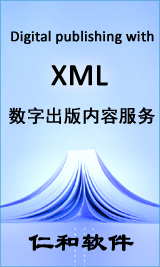TAN YiDalian University of Technology
,
Dalian
,
ChinaSHINODA THitachi Research Laboratory
,
Hitachi Ltd. 391-12 Hitachi
,
JapanMISHIMA YTokyo Institute of Technology
,
Nagatuta. Midori-Ku
,
Yokohama 227
,
JapanSUZUKI TDepartment of Metallurgical Engineering
,
Tokyo Institute of Technology. Ookayama
,
Meguro-Ku
,
Tokyo 152
,
Japan
金属学报(英文版)
The effects of boron addition on defect hardening at room temperature and on high temperature creep properties are investigated in the B2 NiAl intermetallic compound. It is found that boron addition is effective on increasing the room temperature hardeness on the Ni-rich side but it has no effect on the A1-rich side of stoichiometry. These observations are attributed to interstitial dissolution of boron in Ni-rich NiAl and to a lack of solubility and also due to an enrichment at grain boundaries on the A1-rich side. The similar effect is found in high temperature creep resistance of NiAl by boron addition. The high temperature creep resistance increases on the Ni-rich side but it does not affect the A1-rich side of off-stoiciometry.
关键词:
D.Eylon
,
S.R.Seagle
材料科学技术(英文)
The state of Ti research, development and industry is reviewed in this article. The fifty-year anniversary of Ti technology commercialization in the USA provides an opportunity for a historical perspective. Incorporation of "information-age" tools into alloy development, processing, and production invigorates the technology. Consolidation, diversification and globalization have been transforming the Ti industry in the recent years.
关键词:
Yanwu Xu
材料科学技术(英文)
Using mathematical plasticity theories, universal formability (UF) technology has been developed and applied in the automotive stamping engineering and production. As a formability analysis tool, this technology is the major methodology for the development of stamping expert system (solution provider) for (a) product design and feasibility analysis, (b) material automatic selection using nomograms, (c) draw die design using pre-models, and (d) UF and robustness analysis of die performance in finite element analysis (FEA) environment.
关键词:
G.Montay
,
A.Cherouat
,
A.Nussair
,
J.Lu
材料科学技术(英文)
Residual stress in coatings is the result of individual particle stress. Their effects may be either beneficial or detrimental, depending upon the magnitude, sign and distribution of the stresses with respect to the external load. Tensile stress which exceeds the elastic limit causes cracking in surface coatings or at the interface between the substrate and the coat. Compressive stress, in general, has a beneficial effect on the fatigue life, crack propagation, coating adhesion and on the durability of the top coat during service. Compressive residual stresses can increase the number of cycles before crack initiation begins through a mean stress effect. Temperature gradients which occur during solidification and subsequent cooling are the principal mode of internal stresses generation. Some parameters influence the residual stress field of both the coating and the substrate. Substrate nature, spraying temperature, thickness of the coat layer, substrate preparation (grit blasting conditions), and velocity of the splats are in the relation with the quality of the coating. In this work, we will describe the role playing by the ceramics coating elaboration on the residual stress gradient in depth of the component. The incremental hole drilling technique has been developed to determine the residual stress gradient in depth of the coat and substrate which must be used with particularly conditions. This new technology has been employed on zirconia, alumina and tungsten carbide plasma sprayed coating.
关键词:
Coating
,
null
,
null
,
null
LIANG Yong LI Ruiguo Institute of Metal Research
,
Academia Sinica
,
Shenyang 110015
,
ChinaInstitute of Corrosion and Protection of Metals
,
Aademia Sinica
,
Shenyang
,
110015
,
China
材料科学技术(英文)
Recent advances in laser coating technology including laser cladding,laser surface alloying and laser vapour deposition in China are reviewed in this paper.
关键词:
laser
,
null
,
null
,
null
,
null
Journal of Solid State Electrochemistry
The microencapsulation technology was brought in to solidify corrosion inhibitor in order to prolong the releasing time of it. In this work, thiourea (H(2)NCSNH(2)) was used as a corrosion inhibitor and microcapsuled using glutin and polyvinyl alcohol (PVA), respectively, as protective agent. The re-sealing process was used as a way to prolong the releasing time of the H(2)NCSNH(2) encapsulated in microcapsules. It was found that the H(2)NCSNH(2) microcapsule corrosion inhibitor using PVA as a protective agent had a better releasing time. The releasing times of the H(2)NCSNH(2) microcapsule corrosion inhibitors were prolonged from 18 to 48 h by re-sealing process and using PVA as a protective agent. Both the use of PVA as a protective agent and the application of the re-sealing process decreased the encapsulation efficiency of the H(2)NCSNH(2). The performance parameters on protecting Q235 carbon steel from corrosion in 0.1-M H(2)SO(4) solution were evaluated by polarization curve and electrochemical impedance spectra methods. The results showed that the H(2)NCSNH(2) released into the solution from microcapsules could well protect Q235 carbon steel from corrosion and the corrosion-inhibiting mechanisms of it were the same as that of H(2)NCSNH(2).
关键词:
Microencapsulation technology;Corrosion;UV spectrophotometric method;Electrochemical impedance spectra;Polarization curve;carbon-steel;3-percent nacl;mild-steel;in-vitro;release;encapsulation;acid;microparticles;microcapsules;derivatives
材料科学技术(英文)
In this paper, radio frequency (r.f.) heating CVD technology for preparation of high performance fiber has been introduced. SiC, B fibers have been produced by this technology.
关键词:






